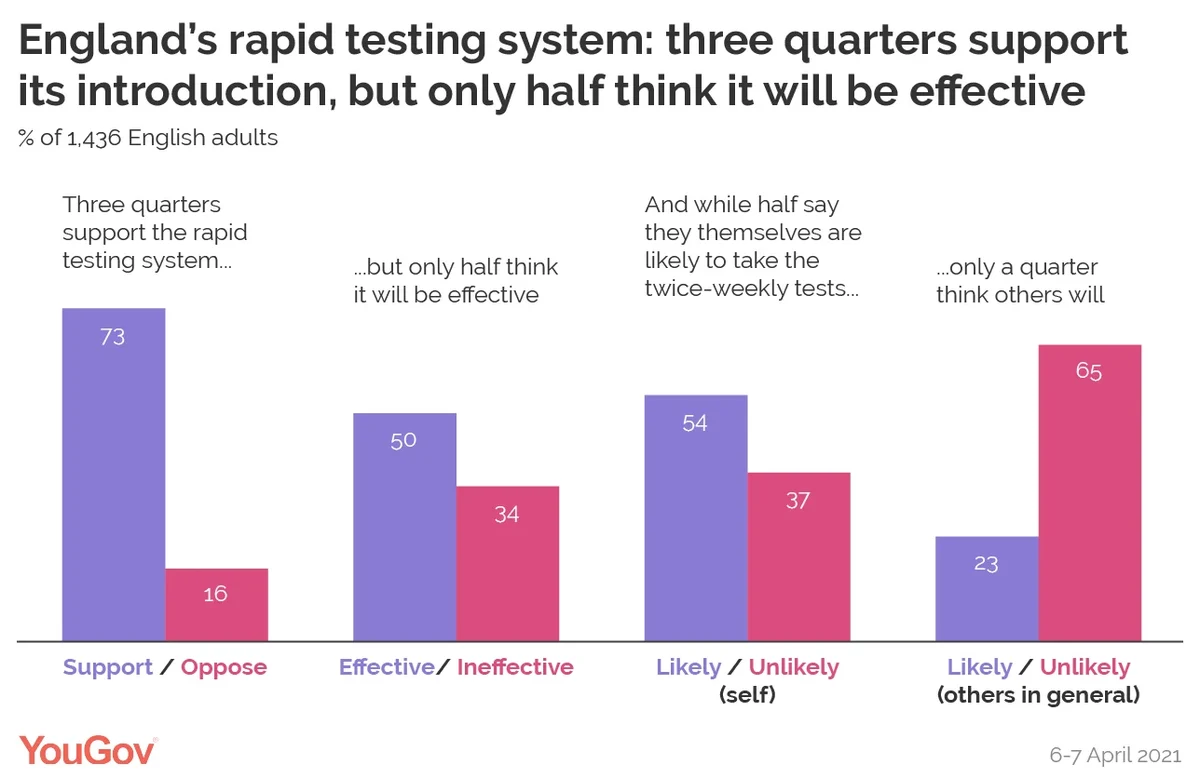But only half think it will be effective
As the country starts opening back up after lockdown, the British government will now offer two at-home rapid coronavirus tests to every adult in England from today, with the aim to help stop the spread of coronavirus in its tracks.
New YouGov polling reveals that the policy is widely supported in England, with just under three quarters of the English public (73%) in favour. Labour voters are particularly likely to support the policy, at 81%, although so too do 73% of Conservative voters.
However, far fewer believe that providing access to two rapid coronavirus tests a week will actually be effective in suppressing the spread of COVID-19 in England, with just 10% thinking it will be very effective and 40% thinking it will be fairly effective.

A majority of adults in England say they’ll be likely to take two rapid tests a week
Just over half (54%) of adults in England say that they’d be likely to take two rapid coronavirus tests a week, with 37% saying they’d be unlikely to do so. Results suggested similar levels of uptake across the age categories, and showed that women are slightly more likely to take the tests than men (58% to 50%).
Despite a majority of the English public saying they’d be likely to take two rapid tests a week, just 23% think that English adults in general will be likely to take two tests a week. With almost two thirds of the public (65%) believing that English adults will be unlikely to take two rapid coronavirus tests a week, it’s perhaps unsurprising that many are sceptical that the policy will have much of an impact on preventing the spread of coronavirus in England.
The gap between public levels of support and how effective people think these tests will be can at least in part be explained by the public’s pessimistic outlook on whether other people will be likely to take the test. Alternatively, it could be that people are overstating the likelihood that they themselves will end up taking the tests – a previous YouGov study showed that while Britons near-universally claimed to be following COVID rules, the numbers didn’t square up with reported compliance among those in their local area.
See the full results here







